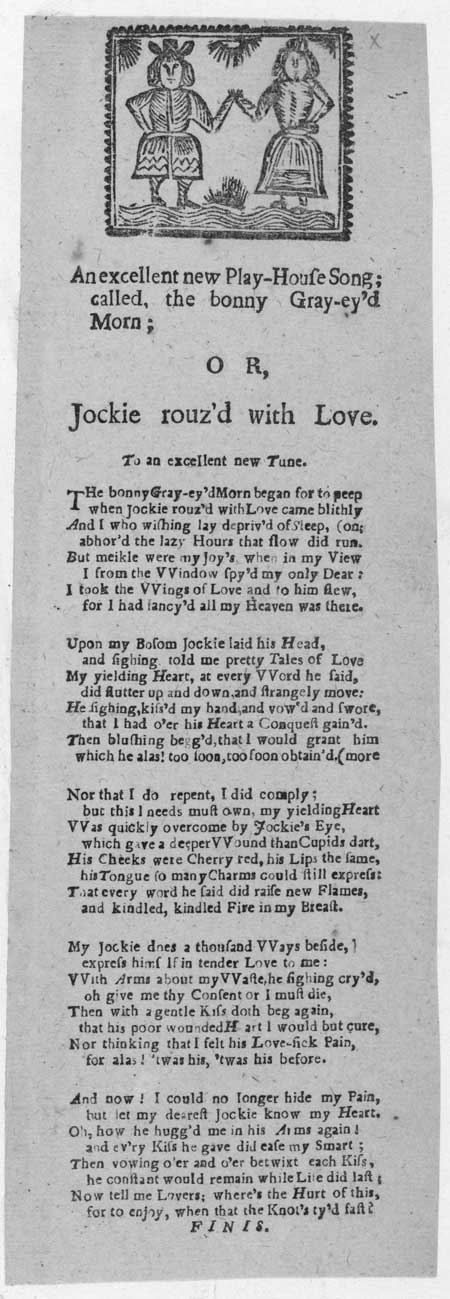Commentary
This ballad begins: 'THe bonny Gray-ey'd Morn began for to peep / when Jockie rouz'd with Love came blithly on; / And I who wishing lay depriv'd of Sleep, / abhor'd the lazy hours that flow did run.' It was to be sung 'To an excellent new Tune'. Broadsides, particularly those describing criminal cases, were often written to reinforce the stern presbyterian morality that prevailed in Scottish society between the sixteenth and nineteenth centuries. This ballad is unusual in that it does quite the reverse. It is narrated by a woman who allows her sweetheart to make love to her although they are not married. Instead of expressing regret, or being punished, she argues that the experience has strengthened their love and asks 'where's the Hurt of this?' Early ballads were dramatic or humorous narrative songs derived from folk culture that predated printing. Originally perpetuated by word of mouth, many ballads survive because they were recorded on broadsides. Musical notation was rarely printed, as tunes were usually established favourites. The term 'ballad' eventually applied more broadly to any kind of topical or popular verse.
View Transcription | Download PDF Facsimile
|


